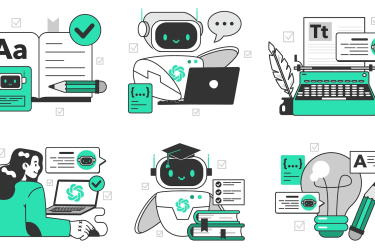When you are working on your research paper or any other kind of academic paper, the credibility of your sources is essential for a strong argument. To deliver a comprehensive idea, you have to back your claims up with valid information based on facts. Therefore, you must be selective when choosing sources for your papers, and there are several fundamental principles that will help you set reliable and questionable sources apart.
-
-
Is the article scholarly enough?
-
The article you use must be issued by a reputable publisher and, ideally, peer-reviewed. If the article you want to use comes from an academic journal, it means it was peer-reviewed and went through all the necessary stages of verification of information. Before the article is published in a reputable journal, its author has to submit it to experts in the same field for a review. If the experts do not approve the paper, they either reject the publication or suggest a revision. If you are not sure about the peer review, here are key points to pay attention to in your source. It is credible when it:
-
-
- Enlightens the subject matter in depth
- Is intended for an academic audience
- Has a clear purpose (usually articulated in the abstract)
- Has an easily identifiable author
- Is published in a reputable and/or academic periodical
- Is relevant to the subject matter of your paper
- Is objective and bias-free
- Demonstrates supporting documentation, such as statistics, graphs, or illustrations
-
-
The marvel of OERs
-
-
In your paper, you can also use information from Open Educational Resources, or OERs. Such resources are created specifically for students to learn from them, so they usually contain encapsulated information on your chosen topic. However, the information from OERs can be easily verified in more reputable sources. Nonetheless, if you decide to use an OER specifically, look for the following aspects:
-
-
-
- It must have a Creative Commons license, which allows sharing and using information.
- Its author must be an expert in the field of discussion.
- The information must be unbiased.
-
-
Websites can be credible, too
-
-
-
Sometimes you need to use specific information from the internet that was not published in academic sources. Information from random websites that have no author or proof can undermine the credibility of your work. However, there are websites that publish reliable data, and what you should mind are the domains sites use.
-
-
-
-
- .gov or .mil are domains for the most reliable sources because they publish information from government or military sources.
- .org is the domain used by professional organizations.
- .edu is a domain used by educational institutions.
- .com is a domain for websites of global organizations and companies, where you can find first-hand information.
-
-
-
The internet provides you with a myriad sources for your research, but they are not equally reliable. Choose your sources based on their credibility, objectivity, and common sense. However, whatever source you find reliable, do not forget to make an appropriate reference to it.






